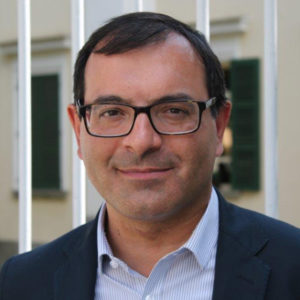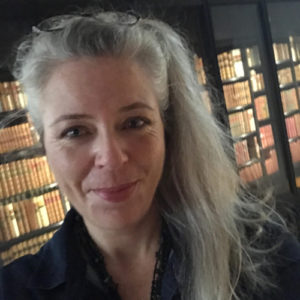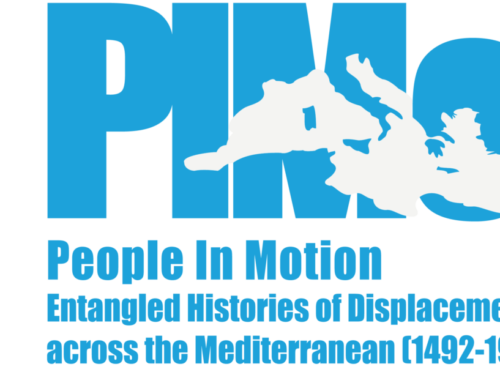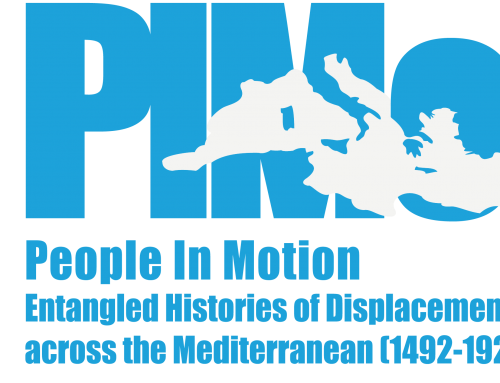Welcome message from the Chair:
On 26 June 2017, when opening the International Seminar Series ‘Entangled Histories of Emotions in the Mediterranean World’, from which the PIMo Action would then spring, I pointed out that despite its transdisciplinary capacity to overturn or revitalize consolidated approaches and historiographic methods, the emotional turn in historical studies might soon lose its innovative force, unless, that is, it broadened its horizons, exploring emotional cultures, lexicons, and taxonomies and investigating their porosity and their entanglements. It seemed necessary then, I noted, ‘that the project inaugurated in Naples should seek to involve an increasing number of institutions and scholars with different linguistic and cultural backgrounds, but who are willing to explore the historical and enduring complexities of cross-cultural dynamics.’ Two years later, here we are, a community of 117 scholars from 40 nations.
The Cost Action 18140 People in Motion: Entangled Histories of Displacement across the Mediterranean, or PIMo, is a four-year global research project being undertaken by scholars from the humanities and social sciences, including historians, philosophers, mathematicians, and experts from fields as diverse as literary, visual, and material culture, and maritime, biological, and bio-behavioral sciences. It addresses the entangled histories of displacement of human subjects within and from the Mediterranean from the fifteenth to twentieth centuries.
Broad enough to support radically distinct civilizations, and yet narrow enough to ensure ready contact between them, the Mediterranean became, in David Abulafia’s view, ‘probably the most vigorous place of interaction between different societies on the face of this planet.’ It has been shaped by a welter of European, African, and Asian influences, as Iain Chambers usefully reminds us in Mediterranean Crossings (2008), before going on to challenge the rigid and limited geographical, political, and historical classifications that underpin the prevailing Western perceptions of the region. Chambers describes the Mediterranean as an environment of metaphorical forces—of waves, winds, tides, and storms—and points out that trying to erect barriers across it runs counter to the ancient function of the sea as a channel for communication. It is a large geopolitical area, where innumerable cultural exchanges have taken place in the most varied and intricate ways down the ages. Inevitably then, North, South, East and West are all ‘entangled in a cultural and historical net cast over centuries, even millennia.’
An entangled history of moving things, knowledge, and people does not content itself just with concepts of hybridity. While these connote ‘the products of cultural fusion,’ entanglement emphasizes ‘the dynamic processes of intercultural exchange and conflict, which are neither static nor complete’ (Bauer & Norton, ‘Entangled Trajectories,’ 2017). As Karen Graubart observes, ‘rather than name an outcome, entanglement suggests ongoing confrontations, shifts, and revisions: a state of mutual learning and pushback which does not dissolve into a final product’ (‘Shifting Landscapes,’ 2017). In considering a variety of histories of exile, displacement, and dispossession, we shall be exploring the tension between desire and fear, individuals and communities, becoming lost and rediscovering oneself, mixing and taking on a plurality of identities within oneself and one’s life.
With a focus on people—and the ideas, objects, and writing accompanying them—PIMo’s goals include evaluating the ways and degree to which these historical events and experiences continue to shape contemporary representations of, and responses to, migration and displacement in the modern world. Consider the recurrent and heated debates about the erection of mosques in European cities, and about the hypocrisy of the architectural mimetism of hiding and displacement. The right to the city theorized by Henri Lefebvre in 1967, the freedom to denounce and combat the relegation of impoverished and exploited segments of the population to peripheral areas of the city, and to call for a radical, participatory transformation of the everyday life of the city, is reevoked nowadays by those calling for a new approach to migration and urban planning. Such an approach would be based on the notion of a large, differential, and hospitable space where difference and inclusion prevail over indifference and exclusion. Lefebvre himself, though he does not particularly address religions and spaces of representation, recognizes their capacity to defend existing particularities against reductive standardization.
The harbour chains of Pisa, which once hung as trophies in Genoa on the Palazzo San Giorgio, the churches of San Matteo and Santa Maria di Castello, and elsewhere—they were taken away by the Genoese in signum victoriae as early as 1284, but were returned in 1860 and now hang in Pisa’s monumental cemetery (Camposanto)—are a particularly effective example of the ‘moving things’ considered in the recent OUP collection Feeling Things: Objects and Emotions through History. These are historical objects which, when removed from their original time and space, and encountered by different emotional communities and cultures, impart and represent radically new types of emotional meaning. We can only hope that the object which is perhaps most emblematic of what is going on in the Mediterranean today—the shoddy, extortionately expensive lifejackets supplied to Mediterranean citizens born on the wrong side of the sea and crammed into unseaworthy boats—might soon find a place in a museum of immigration, as a lasting memory of countless stories of denied entanglements.
I hope you will participate in and enjoy our PIMo activities.
Giovanni Tarantino
University of Florence
PIMo Action Chair
‘Story in … the world’: displacing scholarship and the stories we tell.
As a literary historian working on English language texts predominantly from the eighteenth and nineteenth centuries, two research projects from the summer of 2019 have given me pause. I study fiction, but also ‘life-writing’: letters, journals, travel accounts, and memoirs. Both forms of writing have their pleasures and challenges. In the first instance are the complex valences of constructed and reconstructed fictional worlds, where characters are lives and ideas, shaped by human experience, and caught up in the wondrous thought experiment that is human story. The second type of writing is no less multivalent: words form the invitation, but reading is also a kind of prying, with – I think – peculiar responsibility for me, the reader.
This was my experience working on the early nineteenth-century journal of Harriet Newell. A thoughtful young woman swept up in the Great Awakening of spiritual renewal and missionary conviction that charged the north-east coast of America, Newell accompanied her husband Samuel to India in 1812 to establish the first American Congregationalist Mission. A contemporary of Jane Austen and Mary Shelley, Newell was a similarly private person caught up in public events: Shelley found her way to the Mediterranean; Austen legendarily stayed ‘at home’, but followed the movements of others during the Napoleonic wars assiduously through the London and Hampshire press. (Austen of course experienced multiple displacements during her short life, finding ‘home’ elusive even in the south west of England). For Newell, arriving to discover that America was once again at war with Britain, and that missionaries were not welcomed by the East India Company, it meant a double, perhaps triple, displacement. Unwanted at Calcutta (Kolkota), the couple first sought refuge with British and Baptist missionaries at the nearby Danish colony of Serampore and then set sail again for Île de France (Mauritius). En route, Newell delivered her first child, and died not long after her daughter, becoming recognised as the first American missionary martyr – at nineteen, and at sea.
Harriet Newell’s story is exceptionally powerful in American faith circles, a legacy created through her husband’s publication of her diary and letters immediately after her death. These Memoirs show a vulnerable and questing woman: one who loved to dance, but was conflicted about the morality of the occasional balls in her provincial town; who divided her reading anxiously between the gospel and ‘graveyard’ poetry; and who felt a powerful vocation she did not know how to achieve. I was not making the decision to make these documents public: Newell’s husband had made that two hundred years ago, in devotion to his wife and their cause. But preparing with Michael Gamer (University of Pennsylvania) a new edition of Newell’s Memoirs, I felt implicated in that ongoing and uncomfortable process. Newell had made some of her writing ‘public’ as letters to friends, and members of her congregation. The documents that challenged me were those private diary entries of a very young woman, wrestling with faith, friendship, and motivation, confided searchingly to her journal. As I read and annotated, I wondered: What were my responsibilities as another teller of Newell’s tale?
A second challenge to me as reader and scholar came with work of another woman traveller. My colleague Ana Šverko (Centar Cvito Fisković) and I have been exploring Gertrude Bell’s visit to the Adriatic in the spring of 1910. An exceptional woman in education, opportunities, language, and scholarship, Bell became a key interpreter of the Eastern Mediterranean and Arabic worlds to a curious ‘West’. Fluent in Persian, Arabic, German, and French, Bell was an authority on the art and architecture of Syria, Mesopotamia, Asia Minor, and Arabia. She famously took a key advisory role to the British Government’s restructuring of the Middle East after the Arab revolt, effectively shaping – Emma Notfor argues – the physical and imaginative geography of ‘Arabia’ in the first third of the twentieth century. A long-term resident of Bagdad, and founder of the Iraqi Archaeological museum (largely from her own collection), Bell arguably assumed some role of representing Iraq to itself.
In the Adriatic, in the years just prior to the Balkan Wars, Bell seems to have discovered a gateway for her own desired displacement to the ‘East’. Diocletian’s Palace at Split galvanised her conviction of the intertwined histories and cultures of the Mediterranean; she found monuments to these circulating influences in the stone and spaces of the lively city:
Suddenly the East steps in, bends the architraves into arches, sets new and fantastic decorations on every cornice, brings even the plan of a Syrian camp on which to build the house of a king … At every turn enchanting Venetian courtyards open out of the narrow streets, an exquisite 14th century doorway is crushed in between ancient masonry and finally you pass out under the stern vaulted gateway of the palace into a tiny square in which my hotel faces lovely Venetian balconies and carved windows.
Access to language, text, objects, ideas, and people, gave Bell unique power to represent and advocate for others at a particular historical juncture, and her legacy within this process is deeply debated. Bell, like Newell, reminds me very powerfully of the responsibility to others I have undertaken as a scholar.
As PIMo takes shape and grows – moving towards our first large research meeting hosted by Rosita D’Amora (Università del Salento) in Lecce next month, and developing shared research questions for our newly-constituted Work Groups – Gertrude Bell and Harriet Newell urge on me both the promise and risks of displacement within historical narrative. Their example reminds me of the caution and courtesy with which I must travel too, in history and ideas. As we work to write histories of displacement between the fifteenth and the twenty-first centuries, I hope PIMo’s research can be framed and reframed by these important questions of speaking and writing: what it means to write to, write for, and write with, the people and stories we endeavour to tell.
Katrina O’Loughlin
Brunel University
PIMo Vice-Chair
Reimagining Mobility in the Mediterranean: PIMo’s First Steps
In September 2015, as the summer season in the tourist resorts on the Mediterranean’s shores wound up and holidaymakers packed away their sun towels and parasols to return to their humdrum of daily life, an image from a beach in Turkey captured the attention of the world, if only for a moment. A three-year old boy, face down in the sand, dead. Alan Kurdi was simply the latest in a very long list who have died in recent years attempting to cross the Mediterranean. All the outrage that followed his death did not spell the end for the mortality that now accompanies mobility for certain types of travellers in the Mediterranean space. Although a project like PIMo cannot change the circumstances that drive this flow of migration nor the policies that seek to limit, even repel, it, it can add much needed nuance and perspective to public discourse around mobility in the Mediterranean. For it has always been true that movement in the space of this ‘Middle-Sea’ is experienced differently by people of different classes, religions, genders, and races.
At the heart of our PIMo Cost Action lies this commitment to reframing the so-called ‘migrant crisis’ as part of a much longer history of contact and conflict, exchange and exile, hostility and hybridity in the Mediterranean space. It is therefore fitting that our first event should take place in a city that has been shaped by mobility in the Mediterranean space and that it should be addressed by both an early modern historian and a postcolonial scholar of contemporary migration.
The city of Lecce, whose history has always been and remains inextricably linked to the shifting tides of political power, population movements, and commercial exchanges in the Mediterranean, will host our inaugural workshop on October 11 2019. Professor Giancarlo Casale of the European University Institute in Florence will open the event with a paper entitled ‘Humanist, Captive, Renegade: Three Modes of Displacement in the Ottoman Mediterranean’. Prof Casale’s exploration of the ranges of sources that describe historical forms of mobility and the different visions of people in motion that they present will surely provide inspiration for PIMo members as they break up into the different Working Groups to plan for the project’s development.
Once members have reconvened, hopefully with a clear vision for PIMo’s future activities, they will have the pleasure of hearing Professor Iain Chambers of the University of Naples ‘L’Orientale’, offer his views on ‘Migration, the Mediterranean and the Fluid Archives of Modernity’. Prof Chambers’ paper will underline the ways in which the categories we use to understand movement in the Mediterranean are infused with and constitutive of the social, racial, and economic hierarchies that have always shaped migration patterns and policies in the region. This should help us ensure that all of our project’s activities offer space for subaltern visions of the Mediterranean, past and present.
Following what will undoubtedly be a fruitful few days in Lecce, the PIMo’s main focus will shift across the Adriatic, to the beautiful port city of Zadar, site of our first conference in February 2020. Convened by the members of Working Group 1: Things in Motion, the conference will explore how objects have been transported and exchanged in the Mediterranean, considering not only the history of the processes that facilitated commerce but also the impact they had on the cultural and emotional meanings attached to artefacts. The deadline for submission of abstracts for this conference is November 15 2019 and you can consult the call for papers here: https://www.peopleinmotion-costaction.org/2019/09/01/call-for-papers/. We would love to have you join us there.
As part of the commitment to inclusivity and diversity that lies at the core of both our project and the broader COST programme, PIMo will offer financial support to attend conferences to a number of doctoral students and/or Early Career Researchers affiliated with an institution of an Inclusiveness Target Country (ITC) participating in the PIMo Action. For more details please see: https://www.peopleinmotion-costaction.org/wp-content/uploads/2019/09/ITC-Conference-Grants_201916880.pdf
Our project will also facilitate researchers who wish to take part in Short Term Scientific Missions at an approved institution. For more details, please see the following documents: https://www.peopleinmotion-costaction.org/wp-content/uploads/2019/09/PIMO-STSM_1stCall_2019.pdf
https://www.peopleinmotion-costaction.org/wp-content/uploads/2019/09/FAQs_STSMs-final.pdf
Given our project’s relevance to ongoing political, social, and cultural debates about migration as a Mediterranean and a global phenomenon, we are committed to disseminating and communicating our research findings widely. We will be encouraging all contributors to the project to spread the word through social media, podcasts and reflection pieces on the PIMo website. Many thanks to Prof Susan Broomhall of the University of Western Australia for starting our series of Reflections with her fascinating piece ‘Hercules at the Hippodrome: Cycles of displacement across the Mediterranean’. You can read it here: https://www.peopleinmotion-costaction.org/2019/09/09/1403/.
As we embark on this project together, daunted, perhaps, by the task that lies ahead, I am reminded of the words of the Palestinian poet, Mahmoud Darwish, when writing of the Mediterranean:
‘He who watches the sea doesn’t know the sea. He who sits by the shore doesn’t know the sea. And he who comes only to look doesn’t know the sea. Only he who dives knows the sea. He takes risks. He forgets the sea in the sea. He dissolves in the unknown, as he might in a lover. Nothing to separate the blueness from the water. And there you seize upon a world that words can’t get hold of. It can’t be seen or touched except in the depths of the sea.’
Dónal Hassett
Science Communication Officer
Recent Publications:
Books:
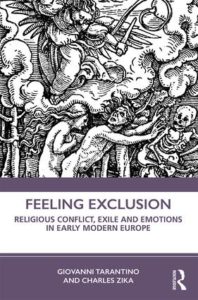
Feeling Exclusion: Religious Conflict, Exile and Emotions in Early Modern Europe, ed. by Tarantino, G. and C. Zika, (New York and London: Routledge, 2019)
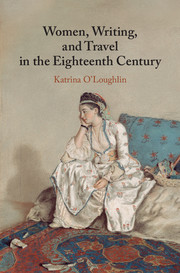
Katrina O’Loughlin, Women, Writing and Travel in the Eighteenth Century, (Cambridge, Cambridge University Press, 2018)
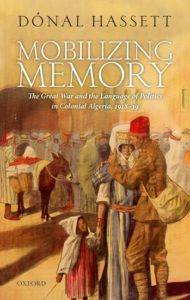
Dónal Hassett, Mobilizing Memory the Great War and the Language of Politics in Colonial Algeria, 1918-1939, (Oxford: Oxford University Press, 2019)


